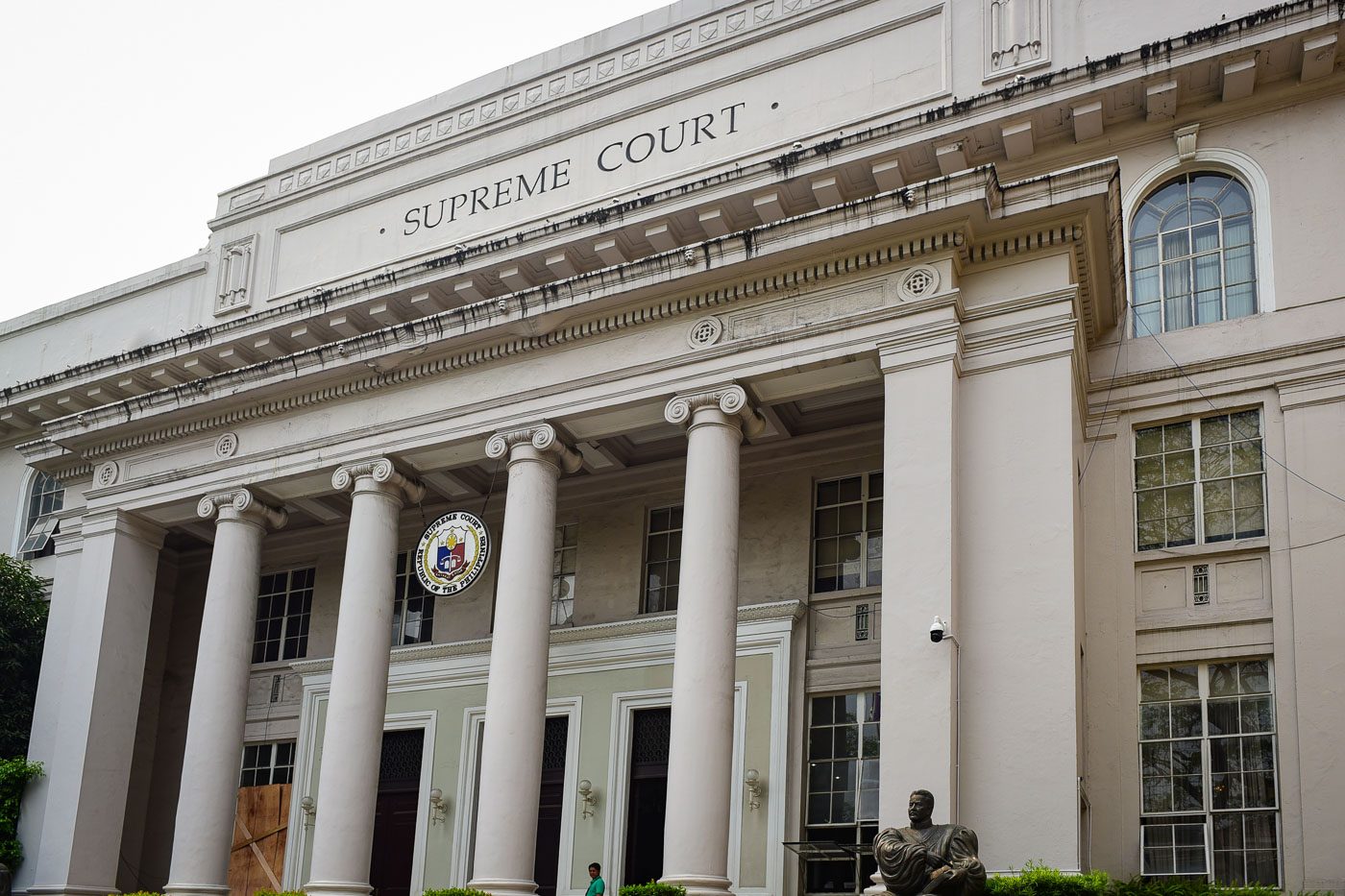SUMMARY
This is AI generated summarization, which may have errors. For context, always refer to the full article.

MANILA, Philippines – Supreme Court (SC) Associate Justice Marvic Leonen said on Tuesday, June 13, there should be clearer operational guidelines on martial law.
“When I look at martial law, there seems to be no operational guideline except its limits,” Leonen said on Tuesday during the first day of the SC oral arguments on the petitions seeking to nullify the declaration of martial law in Mindanao.
If it is necessary for the Court to grapple with martial law, he said, “we need clear operational guidelines.”
Leonen pointed out that under Section 18, Article VII of the Constitution, martial law’s definition is limited to the things which cannot be done – Congress and the courts cannot be abolished – and not so much what can be done.
In particular, Leonen discussed the extent of the powers of the military to carry out warrantless arrests as provided for in the suspension of the writ of habeas corpus. (READ: SC’s Bersamin says trust Duterte on martial law)
Warrantless arrests
While interpellating Marlon Manuel of the Marawi group of petitioners, Leonen rattled off a list of instances when the army can arrest someone without warrant, all of the examples cited having something to do with being armed and about to, or firing, their guns or tanks.
It led Manuel to say that even without martial law, individuals in Leonen’s examples may be arrested without warrant because this is provided for under the rules of court and even in the legal doctrine on continuing crimes.
“Then what is added by martial law?” Leonen asked.
He said: “Martial law is not simply a declaration, martial law has certain real effects. And if there’s no guideline and it’s just a broad declaration, wouldn’t you say that it may be difficult for us to assess the sufficiency of the facts in relation to what is needed by the President?”
Leonen also asked Manuel whether martial law helped even to just strike fear in the hearts of the perpetrators of violence in Marawi. He eventually answered his own question and said that striking fear is just a “pragmatic effect” and declaring martial law may even have “collateral effects” in other parts of the country.
But, Leonen pointed out, “the SC does not rule on what is pragmatic. It rules on what is in the Constitution and what is relevant, given a particular situation.” (READ: Questions you need to ask about martial law in Mindanao)
He also said declaring martial law is an admission by government that there is a “failure of governance.” Therefore, he continued, these exigencies must be used “sparingly” by government.
Leonen also warned that to say martial law will be needed to completely quell a rebellion as claimed by government is to say there is “an indefinite need for it.”
Actual rebellion
For his part, Senior Associate Justice Antonio Carpio focused on whether there was an actual case of rebellion in Marawi.
While Associate Justice Mariano del Castillo was more categorical in his interpellation, saying he believes the raising of an Islamic State (ISIS) flag in Marawi is a clear case of rebellion, Carpio indicated doubt.
Carpio asked Albay 1st District Representative Edcel Lagman: “If the Maute Group merely intended to commit rebellion, if they had the intent and capability but they don’t actually rise up publicly against the government with arms, that is not sufficient?”
Lagman responded that the phrase “imminent danger” was removed from the 1987 Constitution because it wanted to be clear that martial law should only be declared if there is an actual rebellion, and not just the danger of one.
Carpio then emphasized: “Under the 1973 Constitution, mere imminent threat is sufficient to cover martial law. [But] under the present Constitution, there must be actual rebellion. There must be actual rebellion, an armed public uprising to remove a territory from the laws of government or the sovereignty of the government.”
Carpio also questioned the reason for declaring martial law in the entire island of Mindanao, instead of just in Marawi City.
Carpio enumerated a long list of provinces in Mindanao and rhetorically asked Lagman whether there was rebellion in these areas. Lagman answered in the negative. (READ: Nullify martial law? Your guide to the SC oral arguments) – Rappler.com
Add a comment
How does this make you feel?
There are no comments yet. Add your comment to start the conversation.